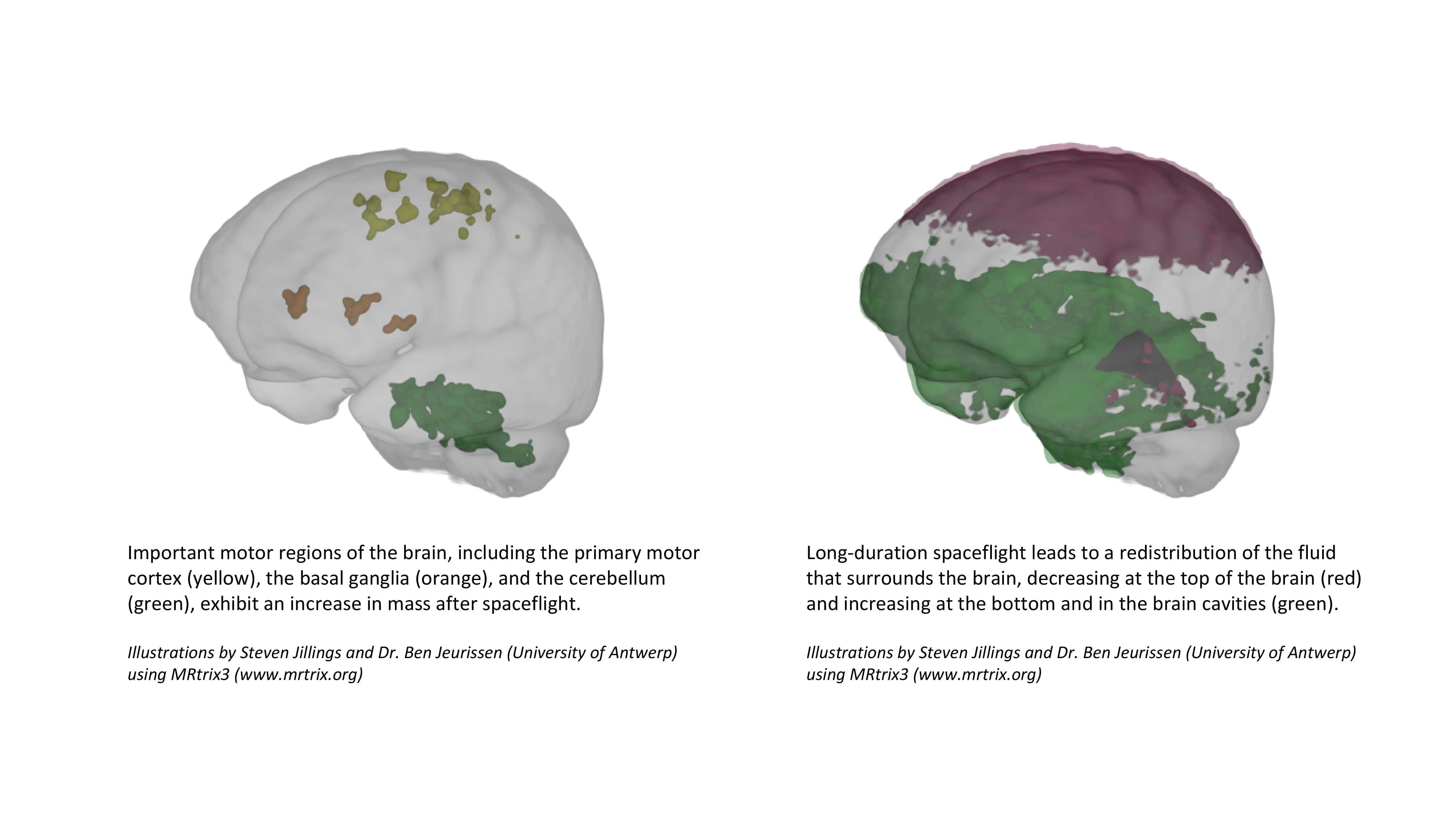Does space travel affect astronauts' brains? Study shows evidence of 'substantial' adaptation to weightlessness

A study on Russian cosmonauts who returned to Earth after their long stay at the International Space Station (ISS) has offered insights on human resilience. When researchers examined their brains, they found signs suggesting adaptations to the hostile space life. "In a way, learning to float around and navigate inside the ISS without gravity is almost like learning how to walk again," Dr Ben Jeurissen, from the University of Antwerp and one of the authors of the study, told MEA WorldWide (MEAWW).
Space is inhospitable. NASA has said that harmful radiation could increase the risk of cancers, and weightlessness wears down muscles and bones. But the effects of space travel on human brains are unclear. It could be because the brain is the most complex and least-understood part of the body, according to Dr Jeurissen. "We are still learning new things about it every day, and it will probably be the last organ to reveal all its secrets," he explained. "Just to collect the data on 11 cosmonauts took us almost 7 years."
According to Dr Floris Wuyts from the University of Antwerp, scanning the brain is very personal, unlike the bone or a muscle sample. "The ISS is a unique lab, and we have the phenomenal opportunity to participate in that research," he told MEAWW. Dr Wuyts conceived the project in 2009 to look for neuroplasticity: the brain’s ability to adapt -- in terms of both structure and function --throughout life and in response to experience. "I see patients with dizziness and vertigo and wondered why some reacted still bad to certain motion stimuli and others not," he said. "My search for neuroplasticity was based on the fundamental question of where to look for this in the brain. After 11 years we finally found it by looking to the brain of cosmonauts before and after spaceflight. Now we know a bit better where to look also in patients."

Dr Wuyts joined hands with the researchers who developed an imaging technique to study parts of the brain that are thought to control movement. It is a type of MRI that provided details on the microstructure of brain tissues. "When scientists with different backgrounds convene, magic happens. And exciting and original research projects are born," Dr Jeurissen said. The team scanned the astronauts' brains before and after spaceflight, and then again seven months later. The images showed an increase in the mass of brain tissues that are thought to control movement. The regions were the primary motor cortex, the cerebellum, and the basal ganglia. Even after seven months, the changes stayed. This, according to the team, could be the brain's response to a changing environment or weightlessness.
"As the astronauts are in space for 6 months and are exposed to this strange new environment 24/7, it is not surprising that the motor functions inside their brain would have to go through substantial adaptation," Dr Jeurissen explained. Further, the images showed that the weightlessness in space pushes the brain upwards towards the skull, and the cerebrospinal fluid (CSF) -- that protects the brain -- downwards. "We believe this to be a purely 'mechanical' effect that results from the absence of gravity in space," he explained.

But this change could slightly impact eyesight. This is because the redistributed CSF will accumulate in the brain, instead of getting absorbed into the bloodstream. As a result, there is more pressure behind the eye, leading to problems with visual sharpness. "When we started this project we really had no idea what we would find, simply because no-one had gone there before, so our approach was exploratory, targeting the whole-brain and using a battery of MRI scans," Dr Jeurissen said. "Now that we slowly start to learn what is happening to the brain in space, we would like to come up with more focused studies, targeting specific effects such as the fluid shifts and really get to the bottom of it."
The study is published in Science Advances.